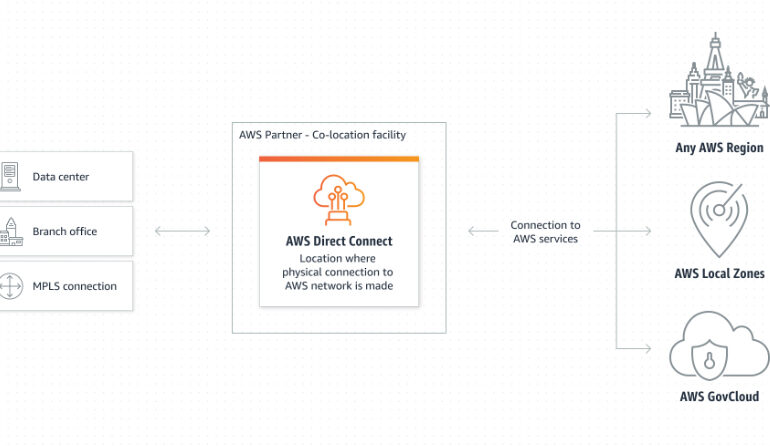The Importance of Good Customer Service Departments in Supporting Internet Service Provider Services

In the fast-paced world of the Internet, reliable and efficient customer service departments play a critical role in supporting Internet Service Provider (ISP) services. With the ever-growing number of users relying on their internet connections for both personal and professional purposes, a seamless customer service experience is essential. From resolving technical issues to addressing billing inquiries, a good customer service department ensures that ISP customers have their needs met in a timely and effective manner.
- The role of customer service in the success of ISPs
- Common challenges faced by ISPs in providing good customer service
- The impact of customer service on customer satisfaction and loyalty
- Key qualities and skills required for customer service representatives in the ISP industry
- Strategies for improving customer service in the ISP industry
- The role of technology in advancing customer service for ISPs
The Role of Customer Service in the Success of ISPs
A strong customer service department is vital for the success of Internet Service Providers (ISPs). Customers expect reliable and uninterrupted internet access, and when issues arise, they rely on customer service representatives to provide assistance and resolve their problems. A well-functioning customer service department can help ISPs differentiate themselves from competitors and build a positive reputation in the industry.
One of the key roles of customer service in the ISP industry is to troubleshoot technical issues. Internet connectivity problems can be frustrating for customers, and a prompt resolution is crucial to maintaining customer satisfaction. By providing knowledgeable and efficient support, customer service representatives can help customers quickly overcome technical challenges and get back online.
Another important aspect of customer service for ISPs is addressing billing inquiries and concerns. Customers may have questions about their monthly bills, payment methods, or any additional charges. A responsive and helpful customer service department can provide clarity and reassurance, ensuring that customers feel valued and understood.
Common Challenges faced by ISPs in providing Good Customer Service
While customer service is essential for ISPs, there are several challenges that they often face in delivering a high level of service. One of the main challenges is the complexity of technical issues. Internet connectivity problems can be caused by various factors, such as hardware malfunctions, network congestion, or software compatibility issues. Customer service representatives must possess the technical knowledge to identify and resolve these issues effectively.
Another challenge is the volume of customer inquiries. ISPs typically have a large customer base, and each customer may have unique concerns or requirements. Managing a high volume of customer interactions requires efficient systems and processes to ensure timely responses and resolutions.
Additionally, language barriers can pose a challenge in providing effective customer service, especially for ISPs serving diverse customer bases. Clear communication is essential in understanding customer issues and providing appropriate solutions. ISPs need to ensure that their customer service representatives are equipped with language skills or have access to translation services when needed.
The Impact of Good Customer Service on Customer Satisfaction and Loyalty
Good customer service has a significant impact on customer satisfaction and loyalty in the ISP industry. When customers receive prompt and effective support, they feel valued and are more likely to continue using the ISP’s services. Conversely, poor customer service experiences can lead to frustration and dissatisfaction, potentially resulting in customers switching to competitors.
High levels of customer satisfaction and loyalty are crucial for ISPs to thrive in a competitive market. Satisfied customers are more likely to recommend the ISP to others, helping to attract new customers through positive word-of-mouth. Additionally, loyal customers are less likely to switch to other ISPs, providing a stable customer base and reducing customer churn.
Key Qualities and Skills Required for Customer Service Representatives in the ISP Industry
To excel in the ISP industry, customer service representatives need to possess specific qualities and skills. Firstly, they should have strong communication skills to effectively understand customer issues and provide clear instructions or explanations. Clear communication helps build trust and ensures that customers feel heard and understood.
Secondly, technical knowledge is essential for customer service representatives in the ISP industry. They should be familiar with common internet connectivity issues, troubleshooting techniques, and the ISP’s network infrastructure. This knowledge enables them to diagnose problems accurately and provide appropriate solutions.
Empathy is another crucial quality for customer service representatives. Customers often reach out for support when they are facing difficulties or frustrations. By showing empathy and understanding, customer service representatives can build rapport and create a positive customer experience.
Strategies for Improving Customer Service in the ISP Industry
To improve customer service in the ISP industry, several strategies can be implemented. Firstly, investing in ongoing training and development for customer service representatives can enhance their skills and knowledge. Regular training sessions can keep them updated on the latest technologies and industry trends, enabling them to better support customers.
Implementing effective customer relationship management (CRM) systems can also streamline customer service processes. These systems can help manage customer inquiries, track issue resolutions, and provide a centralized database of customer information. By having all relevant information readily available, customer service representatives can provide efficient and personalized support.
Furthermore, gathering customer feedback and actively seeking suggestions for improvement can help ISPs identify areas of weakness and implement necessary changes. Customer surveys, feedback forms, and social media monitoring can provide valuable insights into customer satisfaction levels and areas for improvement.
The Role of Technology in Enhancing Customer Service for ISPs
Technology plays a significant role in enhancing customer service for ISPs. Firstly, self-service options can empower customers to find answers to common questions or resolve simple technical issues themselves. Providing a knowledge base, troubleshooting guides, or online chatbots can allow customers to access information and solutions independently, reducing the need for contacting customer service.
Moreover, implementing customer service ticketing systems can help manage customer inquiries efficiently. These systems can categorize and prioritize tickets, ensuring that urgent issues receive prompt attention. Ticketing systems also enable seamless collaboration between customer service representatives, ensuring that customer inquiries are addressed effectively.
Additionally, leveraging data analytics can provide valuable insights into customer behaviour and preferences. ISPs can use this data to personalize customer interactions, anticipate their needs, and proactively address potential issues. Personalized experiences contribute to customer satisfaction and loyalty.
Ofcom results for broadband complaints
The UK telecoms regulator Ofcom* revealed its latest data on customer complaints with Sky coming out in the most positive light.
Shell had the worst performance with Ofcom confirming most customer complaints were regarding faults, overall service and installation of services.

UK broadband complaints(Image: OFCOM)
Here are the full results from Ofcom for broadband complaints
Broadband complaints per 100,000
- Sky • 5
- EE• 7
- Plusnet • 10
- NOW broadband • 10
- BT 10
- Virgin Media • 14
- TalkTalk • 18
- Vodafone • 19
- Shell Energy • 27
*(www.ofcom.org.uk)
Best Practices for Establishing and Maintaining a Strong Customer Service Department in the ISP Industry
To establish and maintain a strong customer service department in the ISP industry, several best practices can be followed. Firstly, hiring and training skilled customer service representatives is crucial. ISPs should prioritize candidates with a combination of technical knowledge, communication skills, and empathy. Ongoing training and development should also be provided to keep customer service representatives up-to-date with industry trends and best practices.
Additionally, creating a positive and supportive work environment can contribute to the success of a customer service department. Recognizing and rewarding exceptional performance, fostering teamwork, and providing opportunities for career growth can help attract and retain talented customer service representatives.
Furthermore, actively soliciting and addressing customer feedback is essential. ISPs should regularly seek input from customers to understand their needs and expectations. Taking prompt action on customer feedback demonstrates a commitment to continuous improvement and customer satisfaction.
Conclusion: The Long-Term Benefits of Investing in a Robust Customer Service Department for ISPs
In conclusion, a robust customer service department is of utmost importance for ISPs. Good customer service ensures that customers’ needs are met promptly and effectively, leading to higher customer satisfaction and loyalty. By investing in skilled representatives, implementing efficient processes, and leveraging technology, ISPs can enhance their customer service offerings and differentiate themselves in a competitive market. Prioritizing customer service not only benefits individual customers but also contributes to the long-term success and growth of ISPs.









































